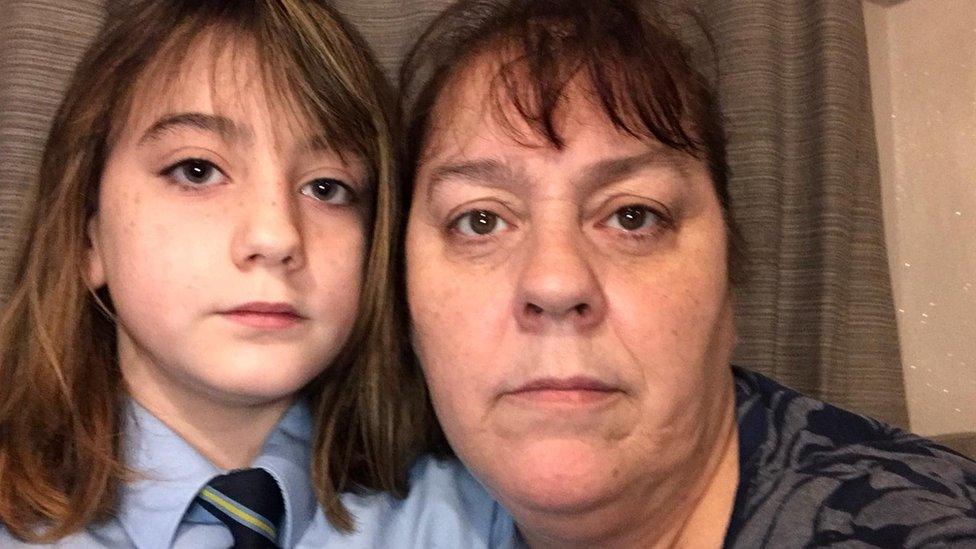'Mum died of cancer - now I must care for my brother'
- Published
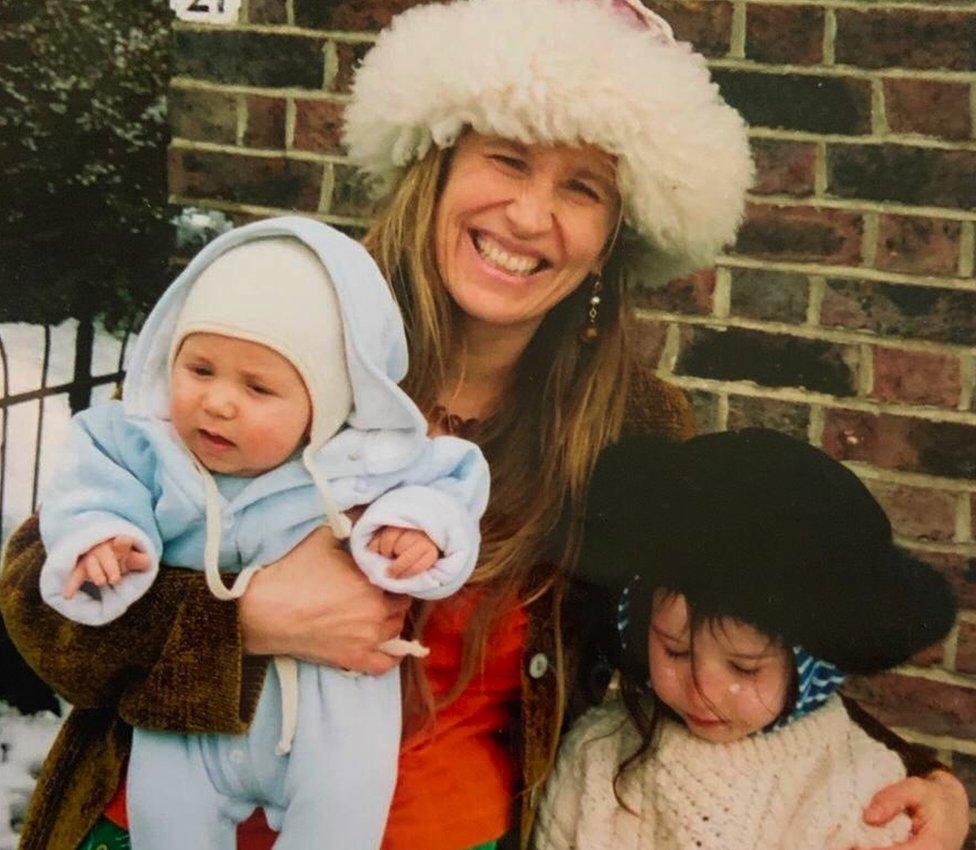
Sarah (bottom right) has taken guardianship of her brother James after their mum Claire died of cancer
Sarah Thomas spent years caring for her terminally ill mum, Claire. But when she died of cancer in June, Sarah took over the "really scary" role of sole guardianship of her 14-year-old brother James.
"Mum was determined to live until I was 18 years old so I could be my brother's legal guardian. When she felt she had done everything she could, that's when she died."
For the past seven years Sarah and James have been the sole carers for their terminally ill mother. When Sarah, now 19, asked for help she said "none ever came".
Somerset County Council said children's services had been working with the family, adding "an offer of support was in place".
The BBC has changed the names of the family members.
The siblings are estranged from their father and grandparents, and have no aunts or uncles.
On the day Claire died at their home in Somerset, Sarah told her mother "everything was sorted, her and her brother would be OK". Those were some of the last words she spoke to her. Claire was 54.
"Now I have to think about how am I going to support me and James," Sarah said.
"My brother is still very young. I worry about him, and I'm worried about looking after him, with no parents, no family. He's 14 and he's lovely, but it is a difficult age to try to completely parent him on my own. It's really scary."
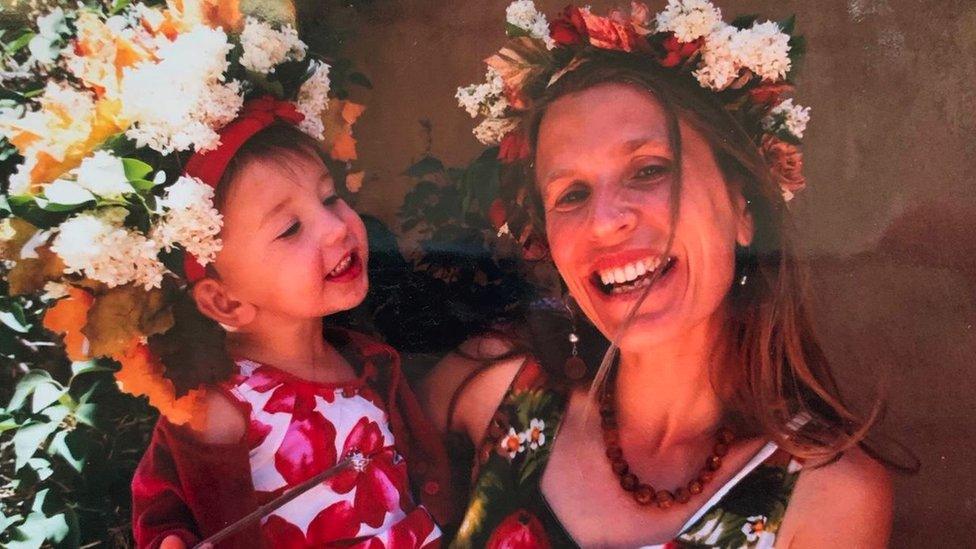
Sarah and Claire in happier times before the cancer diagnosis
Research by BBC News and the University of Nottingham in 2018 suggests the number of young carers could be as high as 800,000, external in England alone.
Sarah and James are two of those who made countless sacrifices and missed out on parts of their childhood because they were looking after a family member.
The Thomas family of three were living in Wales when Claire was diagnosed with stage four breast cancer in 2013, meaning the cancer had already spread to other parts of her body. Sarah was 13 years old and her brother was seven. In 2014 Claire had a mastectomy, but the wound became infected and she was given just a year to live.
She fought the odds and in 2016 the family moved to Somerset where Claire had friends. During this time, Sarah was doing much of the caring for her mum and brother.
"I asked for help with carers, for cooking, cleaning, doing the shopping, the laundry; I was around 16 at the time. No-one ever came," she said.
A Somerset County Council spokesperson said they could not comment in detail on individual circumstances, but that children's services had been in touch with the family.
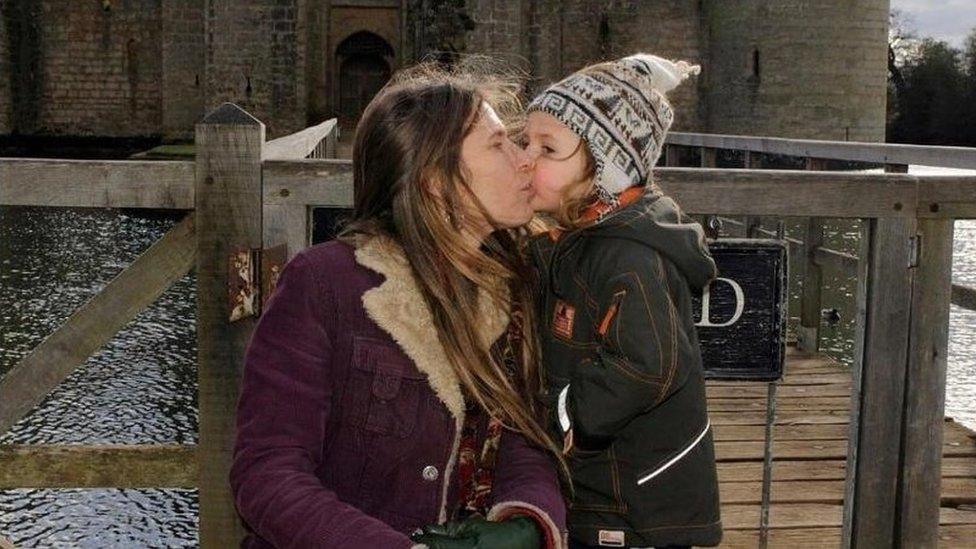
James helped care for his mother full time
Two years later, the cancer had spread to Claire's bones. James, who was home schooled from the age of 10 until he was almost 13, effectively became her full-time carer.
"He was there all the time, trying to help her," Sarah said.
"She was in so much pain. It was so traumatic seeing her in agony all the time. She could barely walk, couldn't pick anything up; life became very hard for all of us."
That same year, Sarah celebrated her 18th birthday. Her mum had completed what she set out to do - to stay alive until her daughter was old enough to be James's legal guardian. But the next year and a half would be "the complete worst", said Sarah.
"We saw our mum become a skeleton. She had tumours everywhere and her hair started falling out.
"I would help wash her, I would clean her room, change her sheets… I would try to make things she could eat. I was just helping her so much.
"I had a part-time job, was going to college, as well as doing parents' evenings for my brother. There was so much responsibility at 18 years old."
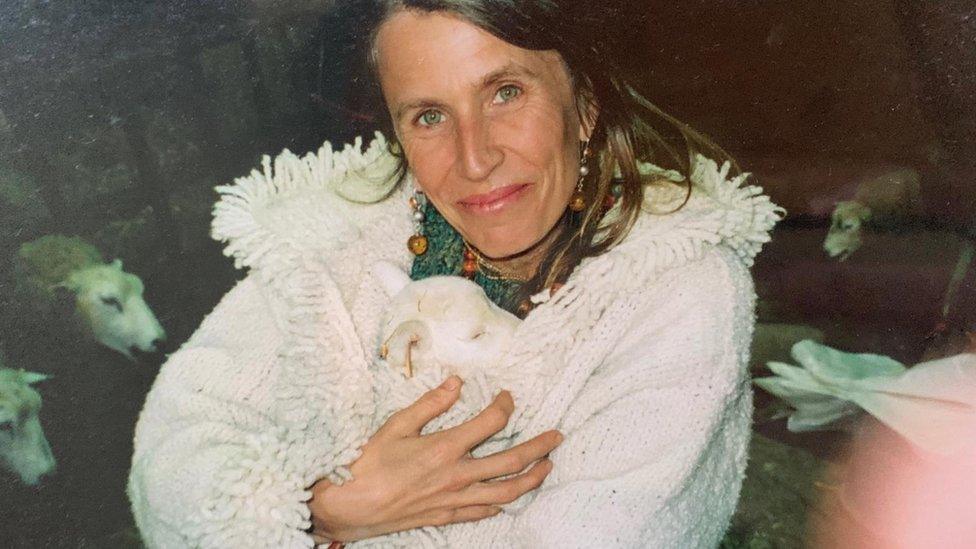
Sarah said her mother held a lot of fear and guilt about leaving her children
As well as the day-to-day help, Sarah was also helping her mum complete all the paperwork to ensure they would have somewhere to live.
Before Claire died, she and Sarah applied for a place for James at a local boarding school, in an effort to ensure he would get the support he needs.
"Mum was trying to give herself time… so she could sort out as much as she could for me and my brother before she died," said Sarah.
"The day she died she was really, really sick, so she couldn't hear much, but I was able to tell her that it's going to happen (the boarding school), it was coming together, and I think she felt that she had done everything that she could, and that's when she died."
Sarah is now fundraising for the money for the school fees. If she manages to raise more than they need, Sarah said she would like to set up her own foundation to help children going through a similar experience.
"What I really struggled with was just feeling so alone," she said.
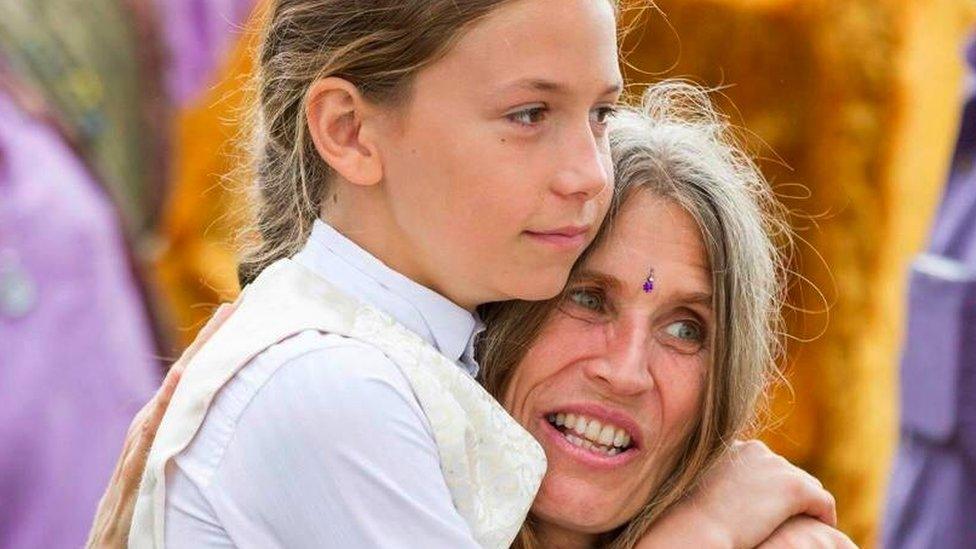
"I didn't know what to do with all the emotion"
"When this was first going on, I was 14-15. I had no other family, no contact with my dad, my mum was dying, I felt like my friends weren't there for me. I was just turning things against myself - and I think a lot of young people do that because they just don't know what to do with all this emotion.
"It was just so much trauma, and that's what worries me, because a lot of people might not ever recover from it and will bring that trauma into their adult life and that's what I want to help with.
"Having been through it, I am able to give advice on what helped me, and I feel like a purpose of my life is to help other people because there isn't a lot of help when you're younger and you're grieving.
"Just to have a conversation about it… is really helpful, and not to feel like you are offloading on to someone who doesn't understand."
Sarah said her mother held a lot of fear and guilt about dying and leaving her children "with no-one". She now hopes she can fulfil her mum's dying wish to get James into the boarding school she thought would provide a caring and nurturing environment for him.
Only then will she get the space she needs to process seven years of caring and grieving for a much-loved mother who in effect they lost years earlier.
A Somerset County Council spokesperson added there were currently five young carer groups across the county and that during the coronavirus crisis virtual group activities have continued offering "a chance to connect with fellow young carers". One-to-one telephone contact and online meetings have also been available.
- Published12 June 2020
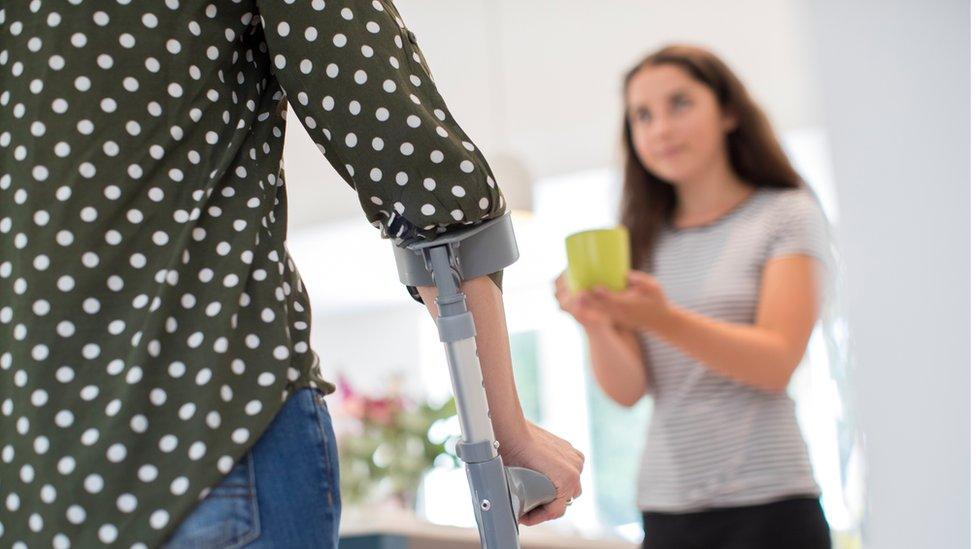
- Published12 June 2020
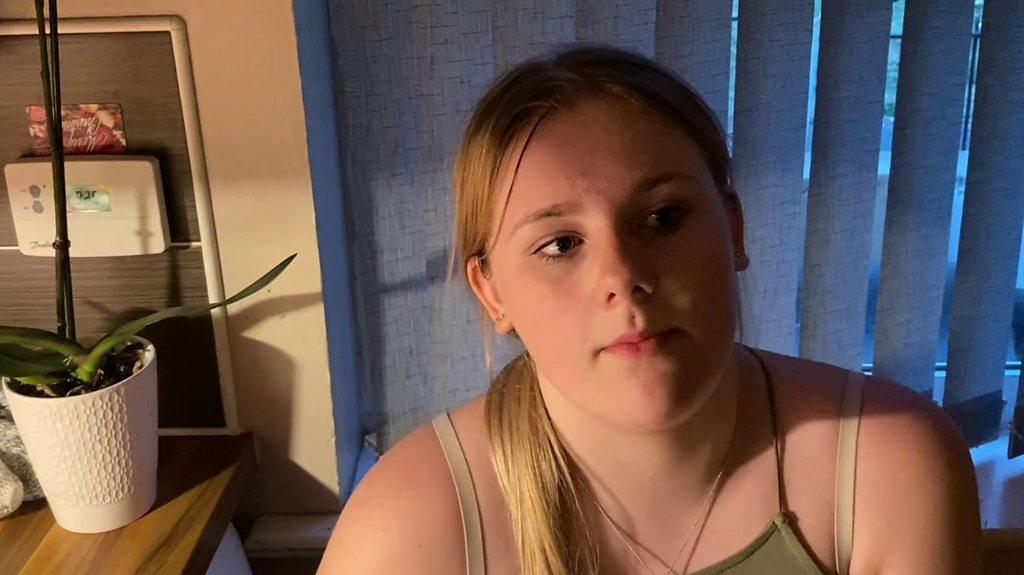
- Published20 May 2020
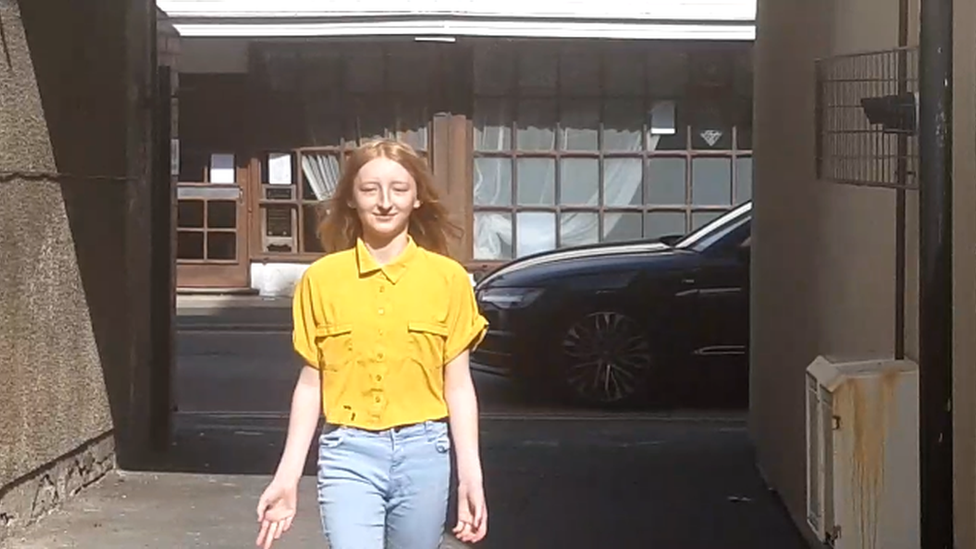
- Published17 February 2020
